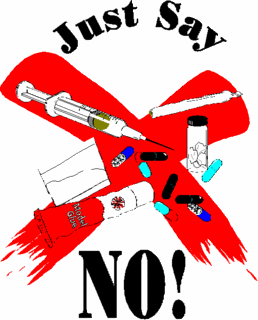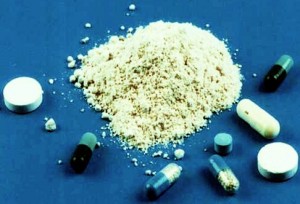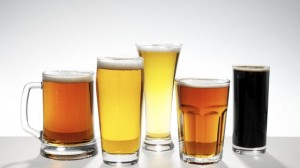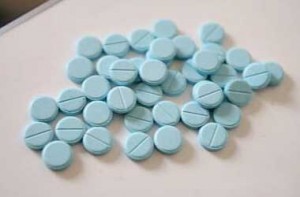
Top 10 Addictions That Are Most Difficult To Overcome
What determines whether you’ll become addicted to a drug or not? Your genetic makeup, social history, the drugs your friends take, how much money you make? The chemical makeup of drugs guarantee that certain drugs are more addictive than others. No matter what your addiction is, a large majority of addicts give up every kind of addiction, so can you. Most people can give it up and this fact may give you the power of belief that you can give it up too.
Here’s a list of the hardest ones to quit..
10. Benzodiazepines

Benzodiazepines are often used to detoxify alcohol-dependent patients and can have life-saving properties in preventing and/or treating severe life-threatening withdrawal syndromes from alcohol, such as delirium tremens. However, although benzodiazepines can be very useful in the acute detoxification of alcoholics, benzodiazepines in themselves act as positive reinforcers in alcoholics, by increasing the desire for alcohol. Because benzodiazepines cause rapid tolerance, quitting cold turkey causes a multi-symptom withdrawal that includes irritability, anxiety and panic attacks—enough to make just about anybody fall right back into benzo’s comforting arms.
9. Amphetamines

Many amphetamines are used in the treatment of attention deficit disorders such as ADD or ADHD or the treatment of sleep disorders. These when taken excessively or for recreational purposes amphetamines can be habit-forming and may lead to addiction. Speed, meth, Adderall, they are all types of drugs that are known as amphetamines and all can cause addiction. Amphetamines are either snorted, injected, orally consumed or smoked to produce a euphoric effect that includes increased energy, heightened alertness and an inability to fall asleep. Quitting cold turkey can cause severe depression and anxiety, as well as extreme fatigue—and you can guess what extreme fatigue makes you crave…
8. Cocaine

Cocaine is an episodic-use drug. It is was once associated with certain lifestyles – at one people in the financial industry and entertainment fields – and more often younger people. Cocaine prevents the reabsorption of dopamine in the brain’s reward areas. After you use enough blow, your brain reduces the number of dopamine receptors in this region, figuring it’s already got plenty of it. You can see where this is going. Because there are now fewer receptors, stopping the drug makes you crave it—after all, the body needs its dopamine.
7. Alcohol

Alcohol is often consumed in social settings, with friends, in parties. It is socially acceptable to a large extent and hence the addiction often goes unnoticed in the primary stages. Its withdrawal syndrome is so severe that it can cause death and its effects on the brain’s reward system and cause well-documented and intense craving in heavy drinkers. Alcohol is the addiction most written about, both in scientific literature and as recounted in personal memoirs.
6. Valium

In general, drugs used for pacifying purposes, taken regularly over long periods of time, are hard to quit. This holds for sedatives, sleeping pills, barbiturates, and tranquilizers. Several best-sellers have been written about the difficulty in quitting Valium. A prominent New York City newscaster, Jim Jensen, recounted in People how he readily quit cocaine but couldn’t get off Valium.
5. Heroin

No surprise here: heroin’s addictiveness is the stuff of legend. As an opiate, it affects opioid receptors throughout the body and mimics endorphins, reducing pain and causing pleasure. What is remarkable is not so much that heroin can produce serious withdrawal for some, but how variable this syndrome is and how comparable it is to other depressant and painkiller drugs and analgesics (like Vicodin and OxyContin), which are the fastest growing drugs of abuse and today are taken by the majority of illicit narcotics users and overdose victims.
4. Gambling
Ask the person who lost all his money on the slots of Las Vegas what the addiction of gambling is. Like all other addictions, gambling once started can’t be stopped. Though the after effects of this addiction are more long lasting than anything else as in worst cases it might lead to loss of all the savings and assets.
3. Cigarettes

Ask a group of people affected by addiction what is the most difficult addiction to give up and the majority will answer in cigarettes. Though studies have proved that two- thirds of nicotine addicted people eventually overcome the addiction but the fact also states that leaving smoke and continuing to do so over a longer period of time is very hard. Often, a person on rebound will crack under pressure and take a puff and then he won’t be able to stop and the smoking saga will continue.
2. Potato Chips

Potato chips happen to have the right mixture of salty, sweet and flavor-carrying fat. You start with one and most often than not you can’t stop till you are finished with the whole packet of it. Food addiction is more readily tolerated as compared to the other addictions like smoking, alcohol and gambling but it does have effects which when cross a threshold can be really dangerous to our health.
1. Love

Talking aboout addictions and not mentioning love would be unfair. Love is the worst of all addictions. It makes you do silly things, go out of your way to be there for the one you love and leaves you shattered if that person is no longer with you. Some of the worst cases have led to stalking, harming or even killing of the one who left. A person addicted to love goes on a self-destruction mode and more often than not, there is no coming out of it.

